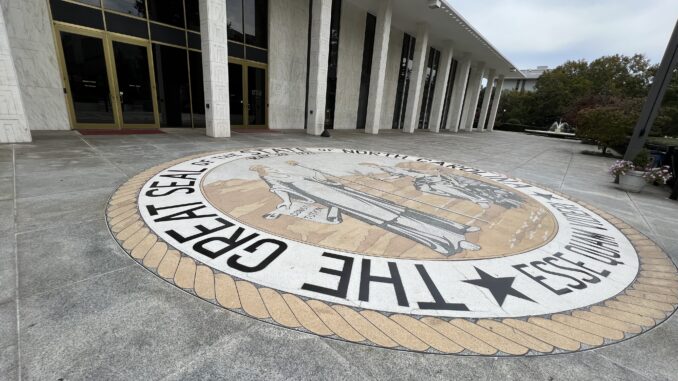
RALEIGH — The North Carolina General Assembly Senate has passed two amendments to the state constitution by a vote of 30-19 for each with no Democrats voting in favor of the measures.
The House has yet to act on Senate Bill 920 and but passed Senate Bill 921 on Dec. 11 by a vote of 73-45.
Once passed, the amendments will be decided on by the voters of the state in the November 2026 election. The governor has no veto power over the amendment proposals.
Senate Bill 920 contains an amendment to the state constitution capping the state income tax at 5%. Currently, the constitution allows a maximum tax rate of 7%, and if passed by a majority of North Carolina voters, the amendment will apply to taxable years beginning on or after Jan. 1, 2027.
Senate Bill 921 would amend the state constitution by expanding the requirement of photo ID for all voters in the state. The ballot language for the amendment reads, “Constitutional amendment to require all voters, not just those presenting to vote in person, to present photo identification before voting.”
“North Carolina is an economic powerhouse, thanks in part to the tax reforms the Republican-led General Assembly has implemented over the past decade,” Sen. Paul Newton (R-Cabarrus) said in a press statement. “Those reforms have returned billions of dollars to hardworking North Carolinians. As our tax rate continues to go down, it’s appropriate for the citizens to have a say in setting the maximum income tax rate.”
“Over the past decade, the General Assembly has been a good steward of your tax dollars. By keeping spending in check and regularly cutting taxes, our state has experienced exponential growth,” Senate Leader Phil Berger (R-Eden) said of the tax cap amendment. “While we continue to cut income tax rates, the people of North Carolina deserve the opportunity to lower the maximum rate to avoid repeating the disastrous tax-and-spend policies the Democrats had.”
On the expansion of voter ID, Sen. Warren Daniel (R-Burke) said it is a “common-sense security measure that needs to apply equally to all voters.”
“As voting has evolved over the years, protecting against fraud needs to as well,” said Daniel. “We shouldn’t treat one form of voting differently, and our constitution should reflect that.”
In addition to the two amendments, House Joint Resolution 151 was passed by the Senate on Dec. 2 by a vote of 29-20.
The Joint Resolution calls for a limited convention for proposing a constitutional amendment on congressional term limits and requests cooperation from other state legislatures to engage in the process.
Two Republicans voted against it: Sens. Tom McInnis (Moore) and Eddie Settle (Wilkes). One Democrat, outgoing Sen. Mary Wills Bode (Wake), voted for passage.
Sen. Graig Meyer (D-Orange) objected to the Joint Resolution, calling it “insane.”
“Ladies and gentlemen, let’s be clear. You are opening the doors to a constitutional convention. This is an insane idea,” Meyer said. “I will vote against it, but if it happens, I will work my butt off to be one of the delegates to that convention. And if you think this is a good idea, that should scare the heck out of you.”
The resolution was ratified and sent to the secretary of State on Dec. 5 as the House had already passed the resolution in March 2023 by a vote of 69-48.
The resolution passed the House with the support of three Democrats; Reps. Garland Pierce, Shelley Willingham and Michael Wray. Four Republicans had voted down the measure; Reps. Jay Adams (Catawba), George Cleveland (Onslow), Jeffrey Elmore (Wilkes), Keith Kidwell (Beaufort) and Ray Pickett (Watauga).
“Today the Senate has passed House Joint Resolution 51, a bill of mine that proposes adding Congressional term limits to the U.S. Constitution,” House Speaker Tim Moore said in a statement following the Senate vote. “I have long been an advocate for this shift away from career politics that would amplify the will of the people over the personal interests of members.”
Moore himself is headed to Congress in January representing North Carolina’s 14th District.
Moore added that the “majority of Americans support the additional accountability of term limits for Congress, which would pave the way for more competitive elections, accountability, and positive change.”

